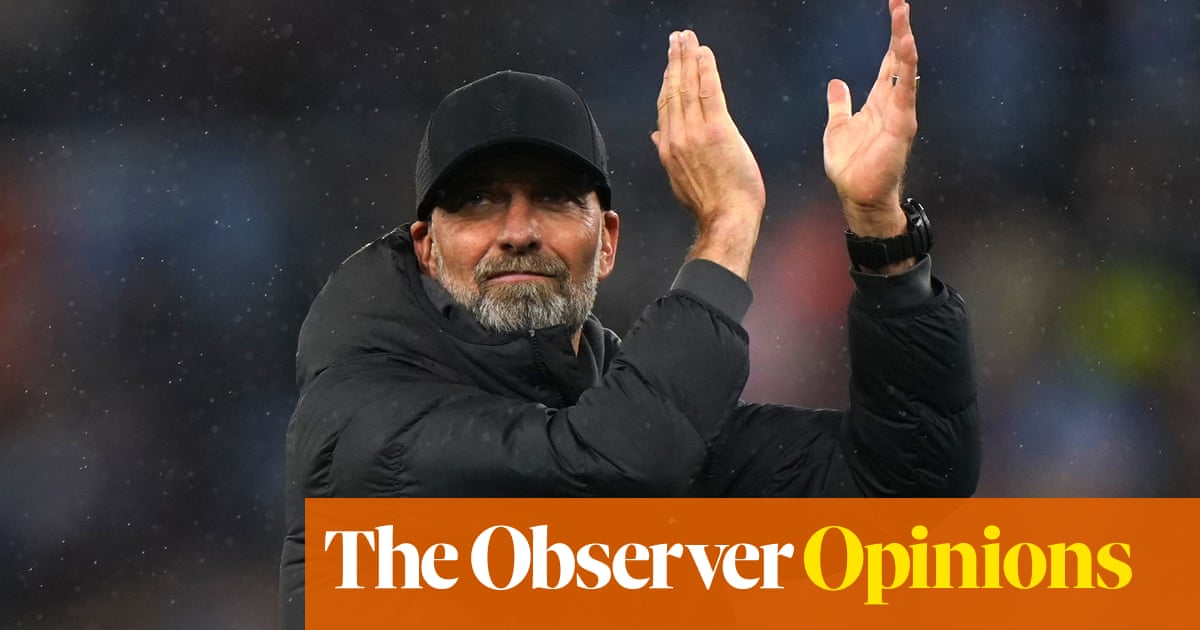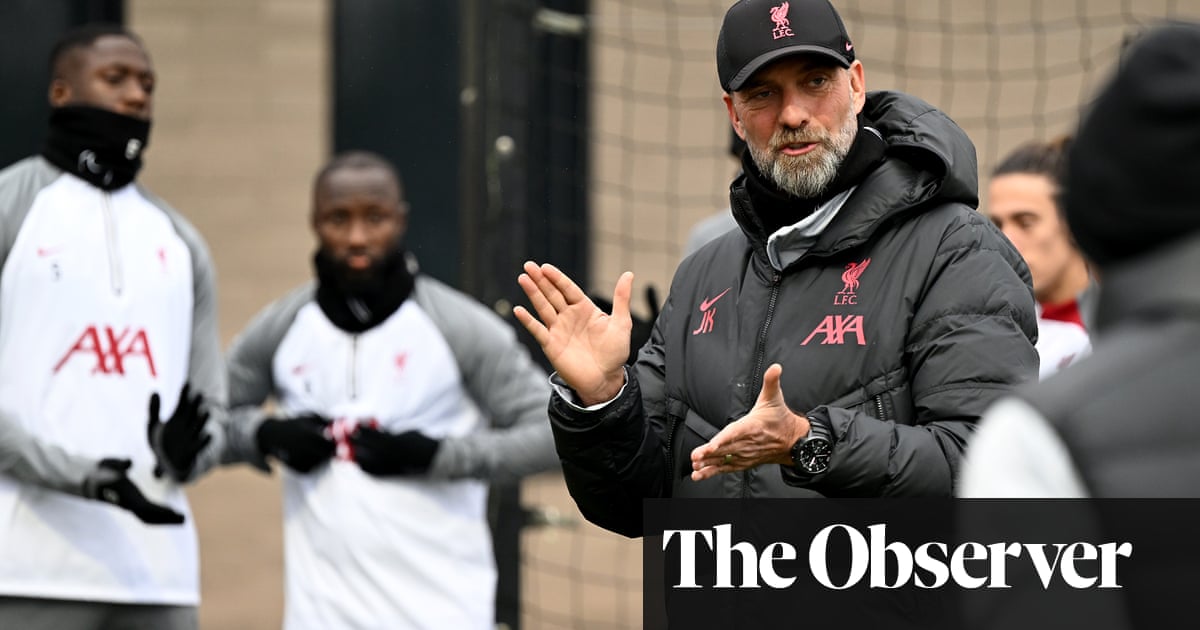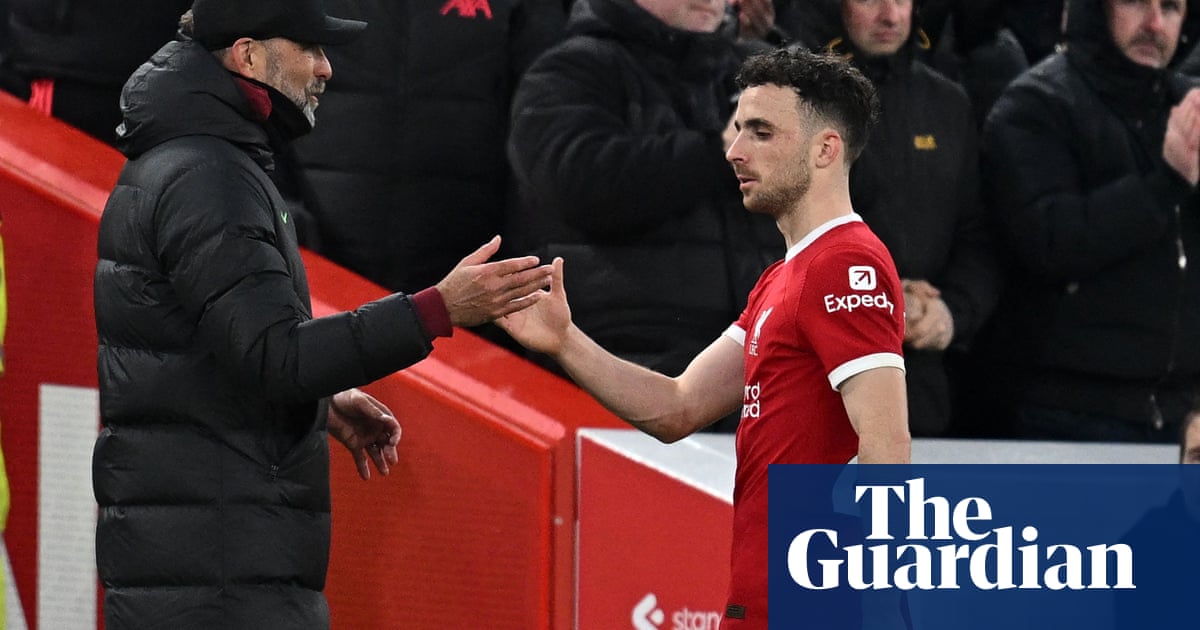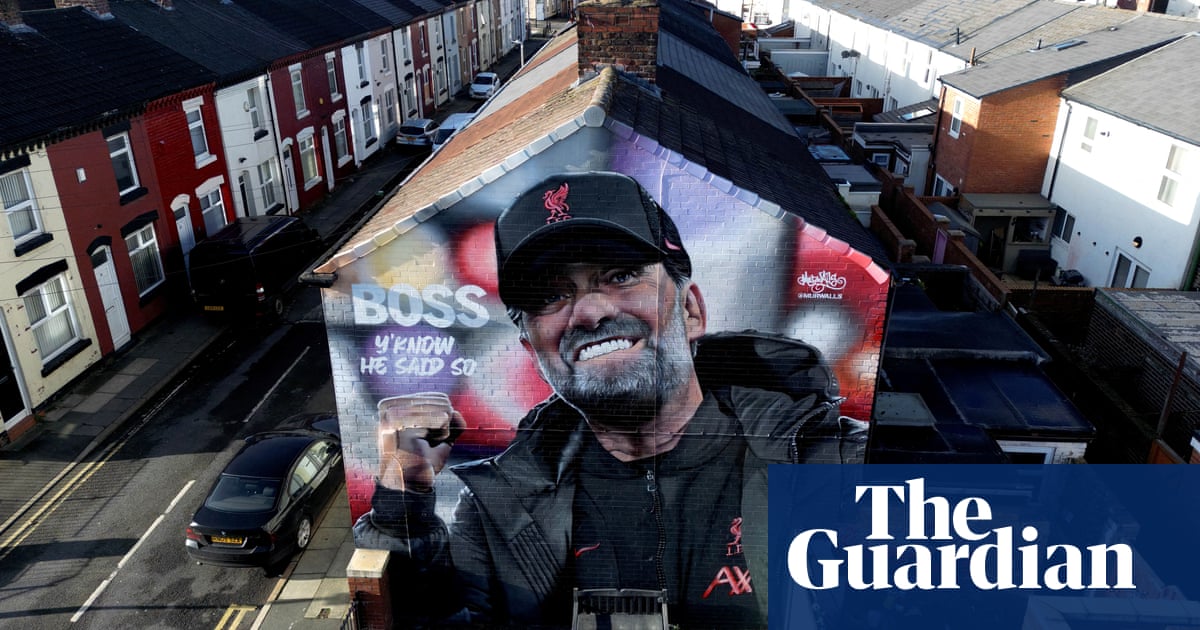
It is not something you often have to consider but what if Jose Mourinho was right? What if, on Saturday, there was for once no bluff or manipulation, no attempt to provoke or deflect attention: what if the analysis he gave of Manchester United’s 0-0 draw at Liverpool was straightforward and correct?
There was, of course, a passive aggressive jibe dividing the world into those who watch football for entertainment (the monsters!) and those who actually understand the game but beyond that his words seemed fairly straightforward. There was a – grudging – respect towards Jürgen Klopp for the way he had held his nerve, and perhaps that is evidence of a change in the Liverpool manager. The game never broke, Mourinho said, and so “for me the second half was a bit of chess”; this is not chess the actual game, of course, which can be played in as many ways as football, but “chess” the metaphor for something cagey.
“We came for three points but in the second half we felt it was difficult to do that with the dynamic of the match. I was waiting for Jürgen Klopp to change, waiting for him to go more attacking but he kept three strong midfielders all the time.” Klopp substituted all of his forward line but kept the three of Jordan Henderson, Georginio Wijnaldum and Emre Can in midfield; had he chosen to chase the game, he could have perhaps withdrawn one of them for a forward and pushed Philippe Coutinho deeper or into a central role in a 4-2-3-1.
That restricted United’s capacity to break, something about which Klopp was clearly delighted: he kept stressing after the game how United are “one of the best counterattacking sides in the world”, yet they threatened only once, on the one occasion when Henrikh Mkhitaryan had an impact, opening up the game for Romelu Lukaku’s one-two with Anthony Martial that led to United’s only shot on target. The Armenian’s anonymity was indicative of how well Liverpool countered United’s counters.
Whether Klopp was right, given Mourinho’s set-up, to remain so cautious is a matter of interpretation – as is the issue of whether Mourinho was right to sit so deep, given Liverpool’s recent form – but it was further evidence of a general shift in Liverpool’s play this season.
The question for Klopp at Liverpool was always going to be whether his hyperactive approach could be as effective in the Premier League in which everybody plays at a high tempo. Even towards the end in Germany, there was a suspicion that with other teams also pressing hard and high, Dortmund were diminished. It was no longer sufficient to run further or faster than other sides in the league. In addition, as teams become more used to counteracting gegenpressing, as their players become more inclined to hit long balls over the press, the tactic loses its power to shock. Klopp’s approach is no longer unique; it’s not even unusual.
Familiarity is one issue; fatigue, or rather efforts to stave it off, is another. Last season Liverpool’s form collapsed in January. This season, with the Champions League to worry about as well, the sense is that Liverpool have eased back. They are no longer pressing with the same ferocity. In Klopp’s first two seasons at Anfield, the average length of each spell of possession enjoyed by an opponent was 5.9 seconds. This season that is up to 6.5, which is lower than the league average but far from exceptional. Distance run and high-intensity sprint stats have dropped.
That, presumably, is part of a conscious plan – the fear for Liverpool is that it is a result of players losing faith in Klopp and not pushing themselves to their physical limits as a result – and given what happened in the second half of last season it makes sense. The problem is that by not engaging opponents high up the pitch, Liverpool are having to do more traditional defending in their own final third – and they are not very good at that. It would be misleading to say that the high pressing of the past two seasons masked defensive flaws, for pressing is itself a means of defense. But what is true is that by pressing less hard, Liverpool are inviting a form of pressure they are ill-equipped to resist, which is why going into the weekend they had the third-worst defensive record in the league.
On Saturday, though, that vulnerability was barely tested; United had only six touches in the Liverpool box. The nature of the game and the identity of the opponent perhaps legitimized a more cautious approach but it is hard then to avoid the conclusion that Mourinho might have tried to expose that weakness a little more rigorously. Just because his analysis was right doesn’t necessarily mean his approach was. In a game of chicken, neither manager blinked.
The Guardian Sport












